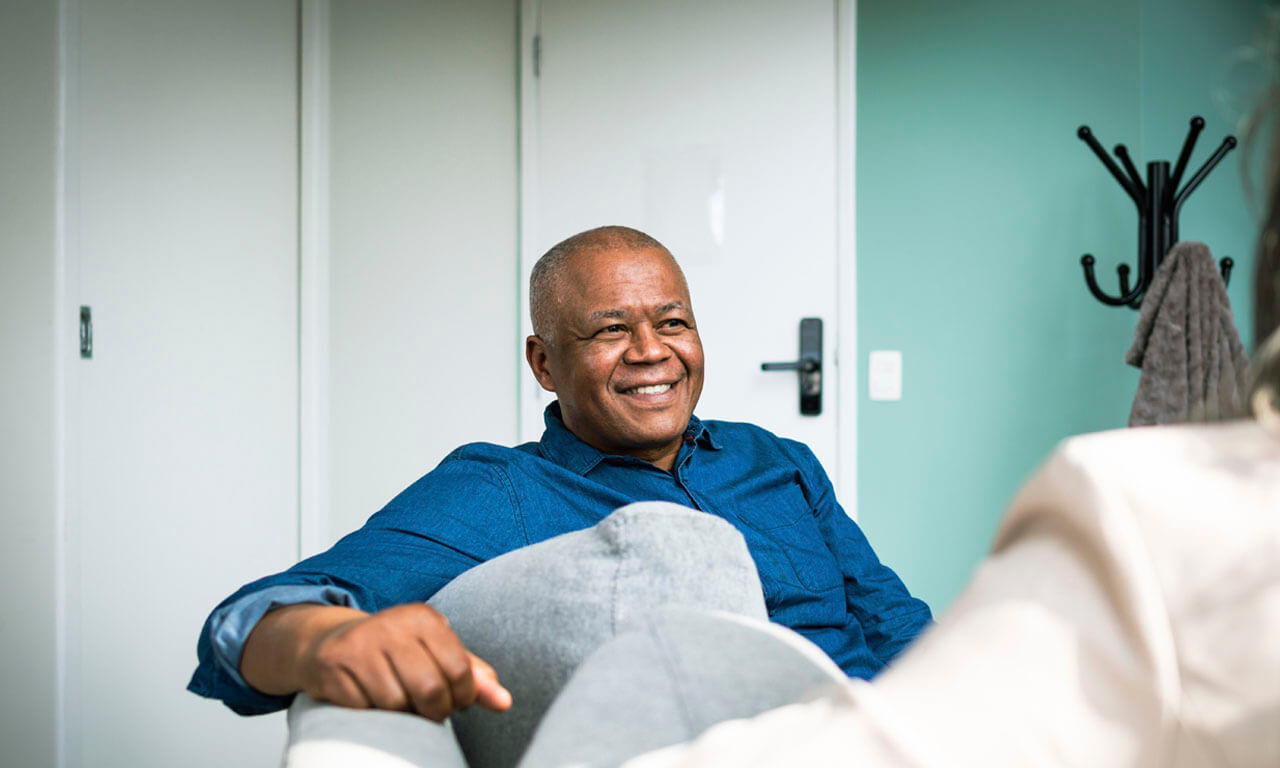.png)
Which? Recommended Provider for SIPP 6 years running
“It's a great way to save for my future. I just wish I’d invested earlier in my life!”
Getting retirement ready
You can usually start taking money from your pension at age 55 (57 from 2028).
There are a few different ways you can do this. It’s a big decision so you should do your research and think about it carefully.
Check if you’re on track
Use our pension calculator to get an idea of how much you should save to get the retirement you want.


Bring all your pensions together in a transfer
If you have old or multiple pensions, you could simplify things by transferring them to us.
With no minimum pension transfer value, it does not matter how big or small your pension is.
Think about how long you need your savings to last
Your pension savings should provide an income for the rest of your life after you stop working. And you may live for longer than you think.
Life expectanc y in the UK has been increasing. Someone 55 today could live for another 45 years. That’s a long time to make your savings last and something to remember when you start taking money from your pension.


Work out how much you need to live on in retirement
Most people spend a bit less in retirement – around 50% to 85% of their current spending. That’s because they often have fewer expenses when they stop working. One way to start thinking about it is to consider your expenses today and take out any you will not have in retirement.
For example, you may have paid off your debts and won’t be commuting to work anymore. You can add additional expenses, like taking more holidays or treating your grandkids.
How much tax might you pay
You can take 25% of your pension tax - free. Any money you withdraw from the remaining 75%, in your drawdown account, will be added to any other income you have for that tax year.
You will pay tax on your drawdown income if you draw more than your personal allowance. How much depends on your total income for that tax year.
/UKPI_SIPP_How_much_tax_mightp_pay.jpg)

Withdrawing your pension
Take a look at our flexible options for releasing your pension pot.
Learn more about flexible income (drawdown) Learn more about individual lump sums (UFPLS)
Why choose us?
Value
Our funds are good value, which means you can keep more of your returns.
No minimum withdrawal amounts
Unlike some providers we do not have a minimum withdrawal amount, so you can take your tax - free cash in lots of smaller chunks if you want to.
UK-based support
Our pension specialists are on hand to help, no matter what the question.
Things to consider
You can carry on saving into your pension, even after you’ve started taking money from it. However, the amount you’re allowed to save may be reduced, depending on which option you choose for taking money out.
Before you start taking money from a pension, the maximum amount you’re allowed to pay into pensions and get tax relief on is £60,000 per year, or your earnings (whichever is lower). This is called your annual allowance.
When you start taking money from a pension your annual allowance can be reduced from £60,000 to £10,000. This money is called the Money Purchase Annual Allowance and is a limit on how much you can pay into defined contribution pensions and still get tax relief.
Whether the Money Purchase Annual Allowance is triggered or not depends on what you plan to do with your pension:
Leave it untouched – nothing changes, you can carry on saving up to £60,000 per year into pensions.
Flexible income (drawdown) – taking your 25% tax-free cash won’t trigger the Money Purchase Annual Allowance. But as soon as you start taking a taxable income the amount you can save into all pensions will be reduced from £60,000 to £10,000 per year.
Individual lump sums – this will trigger the Money Purchase Annual Allowance and reduce how much you can save into pensions from £60,000 to £10,000 per year.
Buy a guaranteed income (annuity) – some types of annuity will trigger the Money Purchase Annual Allowance but others won't. You should check with your annuity provider first. If the Money Purchase Annual Allowance is triggered the amount you can save into all your pensions will be reduced from £60,000 to £10,000 per year.
We’ll pay any money in your pension to your beneficiaries. How much tax they’ll pay on that inheritance will depend on how old you are when you die.
- if you die before you’re 75, your beneficiaries will usually receive any money remaining in your pension tax-free
- if you die when you’re 75 or older, your beneficiaries will usually have to pay income tax on any money remaining in your pension
If you take money out of your pension and leave it to your beneficiaries, they may have to pay inheritance tax (IHT) on it.
If you choose to buy a guaranteed income (annuity) with your pension the options may be slightly different. Many annuities won’t allow you to leave an inheritance at all. While others have specific rules about who you can leave it to and how much they’ll get.
Inheritance tax changes in 2027
In the Autumn Budget 2024 it was announced that, from 2027, there would be changes to the way pensions are treated for IHT. This was confirmed by the government in July 2025.
Unused pension funds will form part of your estate for IHT purposes from 6 April 2027. This will be something to consider if you’re preparing for retirement.
MoneyHelper has created a tool to help you assess your financial situation and plan for the future. You'll get a personalised report recommending actions to improve your finances from middle age onwards.
Need help?
Guidance from Pension Wise
Get free and impartial guidance from the government’s Pension Wise service.
Regulated
We are authorised and regulated by the Financial Conduct Authority.
Secure
We keep your personal information and investments safe at all times.
Covered
We are covered by the Financial Services Compensation Scheme.